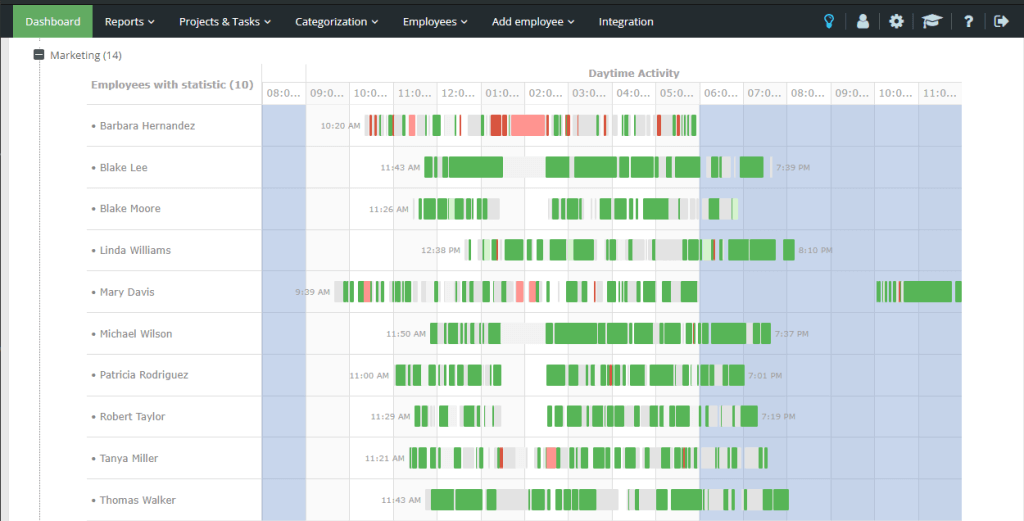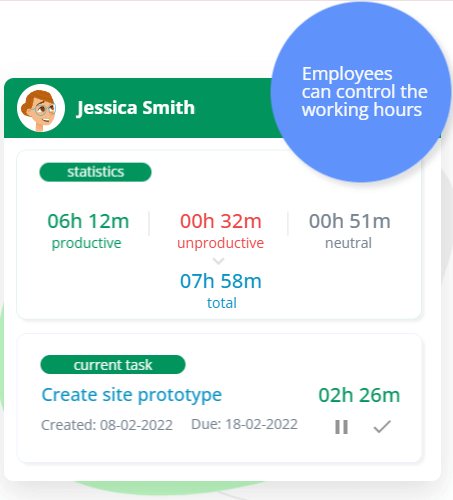The $7.4 Billion Problem Most Companies Ignore
Every business day, American companies lose $7.4 billion due to untracked work activities and time theft. That's not a typo—it's the staggering reality revealed by recent workforce studies. Yet when managers hear “employee time tracking,” they immediately think of surveillance cameras and micromanagement horror stories.
Here's what they're missing: modern employee time tracking isn't about watching every keystroke or screenshot. It's about creating transparency that benefits both employers and employees. Companies implementing smart time tracking see average productivity increases of 35%, while employees report higher job satisfaction and more accurate compensation.
The disconnect happens because most people still think of time tracking as punitive rather than supportive. But forward-thinking organizations are discovering that the right approach to employee time monitoring creates trust instead of destroying it.
What Really Happens When Employees Track Their Own Time
Maria, an HR director at a marketing agency, was skeptical when her company introduced time tracking software. She worried about creating a “Big Brother” environment that would crush team morale. Six months later, she admits she was completely wrong about what employee time tracking actually does.
The most surprising discovery wasn't about catching people wasting time—it was about protecting employees from overwork. The data revealed that her highest performers were working 50-60 hour weeks while being paid for 40. Some team members were handling clients during personal time without logging those hours, essentially working for free.
With transparent time tracking, employees began setting better boundaries. They started charging clients for extra revisions, logging travel time that was previously unpaid, and demonstrating their true value to the organization. Rather than feeling watched, they felt protected and fairly compensated.
How Smart Time Tracking Eliminates Guesswork from Performance Reviews
Traditional performance reviews rely heavily on manager perception and recent memory bias. An employee might work incredibly hard for ten months, but if they have one bad week before their review, that's what gets remembered. Employee time tracking data transforms these subjective conversations into objective discussions about actual contributions.

Consider the impact on different types of workers. Creative professionals often struggle to demonstrate their value because inspiration doesn't follow a 9-to-5 schedule. With detailed time tracking, a graphic designer can show that they spent 12 hours perfecting a logo that drives significant client results. A developer can prove they invested extra time ensuring code quality that prevents future problems.

For managers, having concrete data eliminates the uncomfortable guesswork of who deserves raises, promotions, or additional responsibilities. Instead of playing favorites or relying on who speaks up loudest in meetings, decisions get based on measurable contributions and work patterns.
The Psychology Behind Productivity Improvements
Employee time tracking creates what psychologists call “self-monitoring behavior”—when people become aware they're being measured, they naturally optimize their performance. But this only works when the tracking feels supportive rather than punitive.
Research shows that employees who track their time with transparency and autonomy demonstrate several positive behavioral changes:
- 28% reduction in time spent on low-value activities
- 42% improvement in project estimation accuracy
- 35% increase in focused work periods
- 23% better work-life boundary maintenance
- 31% higher job satisfaction scores
The key difference is control. When employees have access to their own data and understand how it's used, time tracking becomes a personal productivity tool rather than external surveillance.
Why Transparency Beats Surveillance Every Time
The companies getting employee time tracking wrong treat it like a gotcha game—looking for reasons to penalize workers. The companies getting it right use time data to optimize systems, improve processes, and support their teams more effectively.
Surveillance-based tracking creates anxiety, reduces creativity, and drives away top talent. Transparency-based tracking builds trust, improves communication, and helps everyone work more effectively. The difference lies in how the data gets used and who has access to it.
Ready to implement employee time tracking that builds trust instead of breaking it? Modern solutions like Yaware.TimeTracker focus on transparency and employee empowerment rather than surveillance. Discover how smart time tracking can boost your team's productivity while maintaining the trust and autonomy that drives long-term success.

